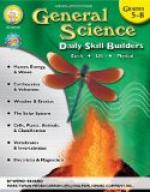HEAT
I. Value of Fire. Every day, uncontrolled fire wipes out human lives and destroys vast amounts of property; every day, fire, controlled and regulated in stove and furnace, cooks our food and warms our houses. Fire melts ore and allows of the forging of iron, as in the blacksmith’s shop, and of the fashioning of innumerable objects serviceable to man. Heated boilers change water into the steam which drives our engines on land and sea. Heat causes rain and wind, fog and cloud; heat enables vegetation to grow and thus indirectly provides our food. Whether heat comes directly from the sun or from artificial sources such as coal, wood, oil, or electricity, it is vitally connected with our daily life, and for this reason the facts and theories relative to it are among the most important that can be studied. Heat, if properly regulated and controlled, would never be injurious to man; hence in the following paragraphs heat will be considered merely in its helpful capacity.
2. General Effect of Heat. Expansion and Contraction. One of the best-known effects of heat is the change which it causes in the size of a substance. Every housewife knows that if a kettle is filled with cold water to begin with, there will be an overflow as soon as the water becomes heated. Heat causes not only water, but all other liquids, to occupy more space, or to expand, and in some cases the expansion, or increase in size, is surprisingly large. For example, if 100 pints of ice water is heated in a kettle, the 100 pints will steadily expand until, at the boiling point, it will occupy as much space as 104 pints of ice water.
The expansion of water can be easily shown by heating a flask (Fig. I) filled with water and closed by a cork through which a narrow tube passes. As the water is heated, it expands and forces its way up the narrow tube. If the heat is removed, the liquid cools, contracts, and slowly falls in the tube, resuming in time its original size or volume. A similar observation can be made with alcohol, mercury, or any other convenient liquid.
[Illustration: Fig. 1.—As the water becomes warmer it expands and rise in the narrow tube.]
Not only liquids are affected by heat and cold, but solids also are subject to similar changes. A metal ball which when cool will just slip through a ring (Fig. 2) will, when heated, be too large to slip through the ring. Telegraph and telephone wires which in winter are stretched taut from pole to pole, sag in hot weather and are much too long. In summer they are exposed to the fierce rays of the sun, become strongly heated, and expand sufficiently to sag. If the wires were stretched taut in the summer, there would not be sufficient leeway for the contraction which accompanies cold weather, and in winter they would snap.
[Illustration: Fig. 2—When the ball is heated, it become too large to slip through the ring.]




